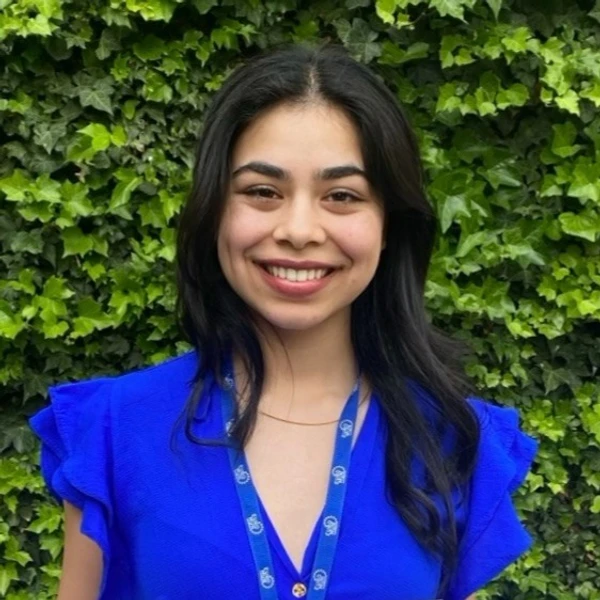
Hobbies and interests
Public Speaking
Advocacy And Activism
Asma Yawari
1,125
Bold Points1x
Finalist
Asma Yawari
1,125
Bold Points1x
FinalistBio
I was born in the United States after my family fled Afghanistan as refugees. As a first-generation born American, I navigated the dual world of American life while remaining connected to Afghan culture. I used my perspective on both sides as an Afghan-American to provide a better reflection of Afghanistan by sharing compelling stories of the people, cultural insights, and historical context of the country.
Due to financial constraints, I began my undergraduate studies at community college then transferred to George Washington University in Fall 2024. I recognize I have the opportunity to improve the lives of affected people with a lack of resources, such as access to education or food. By giving back, uplifting the voices of those in need, and leaving a lasting impact on society, I can promote change and equity in the world around us.
AP News featured my cousin and me in a story on the impact of the Taliban’s education ban on Afghan girls: https://apnews.com/article/afghanistan-women-girls-taliban-education-4c5d8f2a47df4755eacce9ccb08944f3
Education
George Washington University
Bachelor's degree programMajors:
- Economics
- International Relations and National Security Studies
College of DuPage
Associate's degree programMiscellaneous
Desired degree level:
Bachelor's degree program
Graduate schools of interest:
Transfer schools of interest:
Majors of interest:
- International Relations and National Security Studies
- Economics
Career
Dream career field:
International Affairs
Dream career goals:
Intern
Alliance for Education of Women in Afghanistan (AEWA)2025 – Present1 yearCommunications Assistant
International Institute of Economic Policy2024 – Present2 yearsBarista
Starbucks2022 – 20242 yearsProgram Manager
Passport2024 – Present2 years
Public services
Volunteering
Model UN — Vice President2023 – 2024Volunteering
TedxFoggyBottom — Experience Team2024 – Present
Future Interests
Advocacy
Politics
Volunteering
Philanthropy
Entrepreneurship
Harry & Mary Sheaffer Scholarship
My mother remembers the day she lost her education as though it were yesterday. At first, school closures seemed temporary, a political decision she and her classmates believed would soon be lifted. Then, the ban lasted for years. After my family fled Afghanistan in 2001, I grew up hearing stories of progress, from women’s universities opening to female politicians in office. However, we experienced the tragic reversal of those gains in August 2021 as the Taliban regained control. I watched my cousins, aunts, and millions of Afghan girls lose access to higher education and their rights once again. To many, these events may feel distant or historic, but to me, they are personal. My female relatives have instilled in me a valuable lesson: a classroom is never guaranteed. They have shaped not just who I am but also why I do what I do. As the first girl in my family to pursue higher education, I carry both the privilege and responsibility of my family's sacrifice. I also carry a deep understanding of women’s oppression and a commitment to amplifying underrepresented voices.
I once believed that simply attending school would fill the generational gaps in my family’s education and break stereotypes. However, I realized I must do more. This awareness fueled my realization that my story can bridge two worlds and foster empathy. I faced harsh stereotypes and negative judgment that misrepresented my identity and heritage. In response, I took the initiative to bridge the gap between misunderstanding and true representation of Afghanistan and its people. I hosted a workshop through the University of Chicago in Illinois titled “Humanizing Afghans.” I used my perspective on both sides as an Afghan-American to provide a better reflection of Afghanistan by sharing compelling stories of the people, cultural insights, and historical context of the country. Participants expressed how their views were challenged, where they now view Afghanistan beyond stereotypes and tragedy, but through a humanized lens. It was fulfilling to see how open people were to listening and learning more about a different culture and the country’s history. Additionally, my cousin and I were featured in an AP News article that shared our story, allowing millions of people to learn more about our situation as Afghan girls on opposite sides of the world, growing empathy and understanding. Seeing how impactful our story was to others affirmed for me how compassion grows through storytelling.
Currently, I am interning with the Alliance for Education of Women in Afghanistan (AEWA), helping coordinate the organization's annual meeting at Stanford University that connects Afghan educators, students, and diaspora leaders. I am also developing a research project on the humanitarian crisis in Afghanistan, where I’m interviewing Afghans in the United States and abroad to elevate voices often ignored in global policy circles. I believe global awareness grows when we listen to real stories. That’s why, in addition to my studies and research, I hope to establish a nonprofit supporting both Afghan women and communities within Afghanistan and the diaspora that offers ESL and Persian classes, mentorship, and cultural programming to foster intercultural relationships.
Ultimately, I am motivated by the opportunity, one that my family abroad does not have, to initiate and engage in difficult dialogue that continues to amplify stories and voices. Through these efforts, people are seen as more than mere statistics on the news. Humanizing those numbers allows viewers to attach an individual who has goals, stories, and a life to every number.